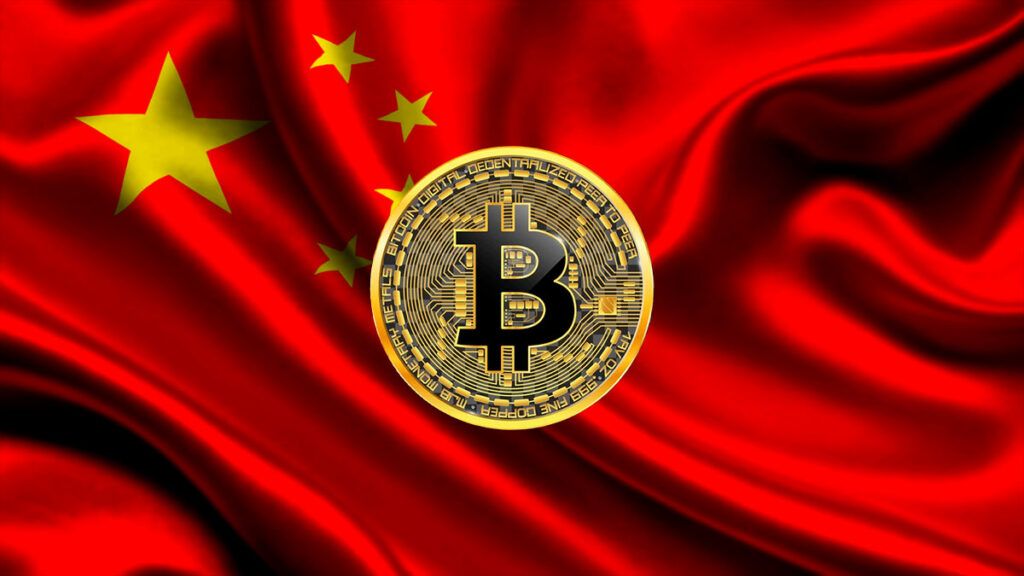China’s Crypto Liquidation Strategy: How Hong Kong Became the Global Power Play
-

Behind China’s latest crypto move isn’t just regulation — it’s geopolitical leverage.Last week, as Hong Kong unveiled its LEAP Digital Assets Policy 2.0, Beijing quietly dropped a far more seismic update: China plans to liquidate its massive stash of confiscated crypto through Hong Kong’s licensed exchanges. It’s not just about compliance — it’s a calculated strategy to control liquidity, influence prices, and outmaneuver global rivals.
🧠 The Big Picture: A New Kind of Reserve WeaponWhile the U.S. stockpiles Bitcoin in cold wallets under a passive “hold-only” policy, China is choosing a far more agile and market-active playbook.
Instead of just sitting on assets, Beijing will inject liquidity directly into Hong Kong’s regulated markets, turning the city into a real-time price modulation tool. It’s not just about cashing out — it’s about steering markets, managing volatility, and sending signals.
Think of it like oil reserves you can tap and move — only this time, it’s digital gold.
 Why Hong Kong?
Why Hong Kong?Hong Kong’s regulatory framework was already miles ahead. In the past three years, the region:
Passed AML laws regulating virtual asset platforms (2022) Introduced a licensing regime for stablecoins (Aug 2025) Unveiled LEAP 2.0, streamlining cross-sector Web3 developmentAdd China’s liquidity injections to the mix, and Hong Kong isn’t just another Web3 hub — it becomes the liquidity command center of Asia, if not the world.
 Liquidity as a Weapon
Liquidity as a WeaponHere’s where it gets strategic:
Liquidity moves markets. Controlled flows of Bitcoin, stablecoins, or tokenized assets can move price floors or ceilings. China holds the switch, while the U.S. remains sidelined with an inactive reserve. Market influence becomes asymmetric: those who can inject capital shape the story, control the pace, and gain the edge.This gives China an OPEC-style influence over global crypto pricing. The result? Hong Kong becomes the “market-making engine” of the digital asset world.
 Why It Matters for Everyone Else
Why It Matters for Everyone ElseThe implications ripple far beyond Asia:
Investors and institutions will follow the liquidity — and it’s heading toward Hong Kong. Other jurisdictions like the U.S., Singapore, and the UAE may need to reconsider how they treat reserves — passive holding isn’t a strategy anymore. Traders and builders should watch Hong Kong’s VATPs closely — not just for innovation, but for signals. Final Thoughts: This Is a Chess Game — And China Just Took the Center
Final Thoughts: This Is a Chess Game — And China Just Took the CenterWhile headlines chase regulatory checklists and new licenses, the real story is this: China has fused regulation with economic warfare — and liquidity is its weapon of choice.
Hong Kong’s exchanges are no longer just marketplaces. They’re now part of China’s macro playbook, designed to:
Shape prices Attract capital Dominate narratives And pressure competitorsIn crypto, the highest ground isn’t the biggest tech or best token. It’s the deepest liquidity pool — and Hong Kong just got filled.
Stay sharp. In this new game, liquidity equals power — and Beijing’s holding the hose.
-
Fascinating read. China's strategic use of Hong Kong as a controlled crypto gateway while keeping the mainland tightly regulated is a masterclass in geopolitical finance. It's like they’re playing both sides — maintaining global influence while managing domestic risk. Curious to see how this shapes future East-West crypto flows.

















